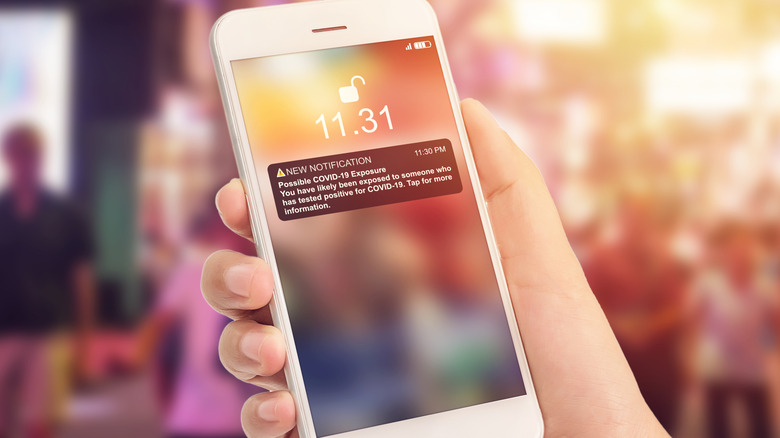Can Weather App Technology Help Forecast Your Unique Risk Of COVID?
Not long after the COVID-19 lockdown, a few apps were developed to help the public control the spread of the virus. Most of these apps were based on contact tracing information, alerting people if they had been in contact with someone who tested positive for the virus. While apps can't control an epidemic, some evidence shows that they are useful in helping reduce COVID infections, according to Nature.
Current apps are somewhat limited, and they don't regularly update to provide more detailed information, unlike weather apps. Now, one researcher is considering how effective a COVID forecasting app would be. The app would collect data, much like weather apps do, and help you determine your unique risk for being exposed to COVID. That's the app that Tapio Schneider, professor of environmental science and engineering at the California Institute of Technology and senior research scientist at NASA's Jet Propulsion Laboratory, wants to create (via WebMD).
The app could be useful in controlling a pandemic
Schnieder worked with a team of experts to determine whether such an app would work. Their findings, published in the journal PLOS Computational Biology, were based on a simulation city with a population of 100,000. The app would gather metrics based on proximity data, test results, the number of exposed individuals in your area, and how much of the virus is in local wastewater. Other data could include information from wearables, self-reported symptoms, and information from community health organizations, like hospitals and medical clinics, per Caltech. The app would update in cycles, giving users the most up-to-date information. It would also alert users if they've been exposed to the virus.
Researchers found that if 75% of the population used such an app, followed COVID-19 protocols, and isolated when they needed to, a pandemic could be managed. Schnieder went on to say that such an app would be just as effective as a lockdown, per WebMD. While it may be too late for the current pandemic, Schneider says that it could work for other epidemics and diseases.


